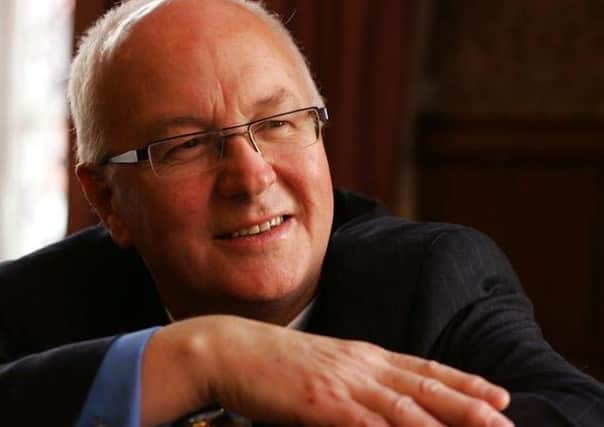He possesses heavens but covets the earth


He stood in the background of Irish literary and artistic life, behind the likes of Yeats and O’Casey.
Yet his stature was such that he was invited to become a Senator in the new Irish Free State, an honour which he ultimately declined.
Advertisement
Hide AdAdvertisement
Hide AdYeats has preserved a saying reported to him by Russell, to whom an old Irish beggar once said, ‘God possesses the heavens, but he covets the earth, he covets the earth’.
At first sight, the phrase seems somewhat irreverent, appearing to suggest that there was something deficient in God, that he could not exist in splendid isolation.
The well-known phrase of Saint Augustine, ‘Thou hast made us for thyself, and our hearts are restless until they rest in you’ suggests that the deficiency is in humanity.
There is a ‘God-shaped blank’ in our hearts. We are incomplete without God.
Advertisement
Hide AdAdvertisement
Hide AdThe old beggar’s comment, however, suggests that God is incomplete without us.
The same idea is in the verses of the black American poet James Weldon Johnston whose poem ‘The Creation’ begins; “And God stepped out in space, and He looked round and said ‘I’m lonely, I’ll make me a world’”.
In the Genesis account of creation, each new stage is rounded off with the saying, ‘And God saw that it was good’.
Why did he not stop there? Did God sense an incompleteness in his work? Even though ‘He possesses the heavens’, he went on to fashion mankind ‘in his own image’.
Advertisement
Hide AdAdvertisement
Hide AdThat phrase does not suggest physical likeness but rather the capacity to respond to God’s approach, in the way no other creature can.
The extent to which God yearns for a relationship with his creatures is shown at Christmas. T
he birth of Jesus at Bethlehem was God reaching out to us. He was not content to see the world rolling on in it’s aimless way, stumbling from one crisis to another.
He was not prepared to see men and women he had created for fellowship with himself, lost in sin and hopelessness.
Advertisement
Hide AdAdvertisement
Hide AdAs Paul wrote to his friends, ‘When the time had fully come. God sent his Son, born of a woman, born under law, to redeem those under law, that we might receive the full rights of sons’. (Galatians 4: 4,5).
How shall we respond to that love that comes in search of us? Another poet, Christina Rossetti, gives the answer; ‘What can I give Him, poor as I am? If I were a shepherd, I would bring a lamb; If I were a wise man, I would do my part, Yet what I can I give Him — Give my heart’